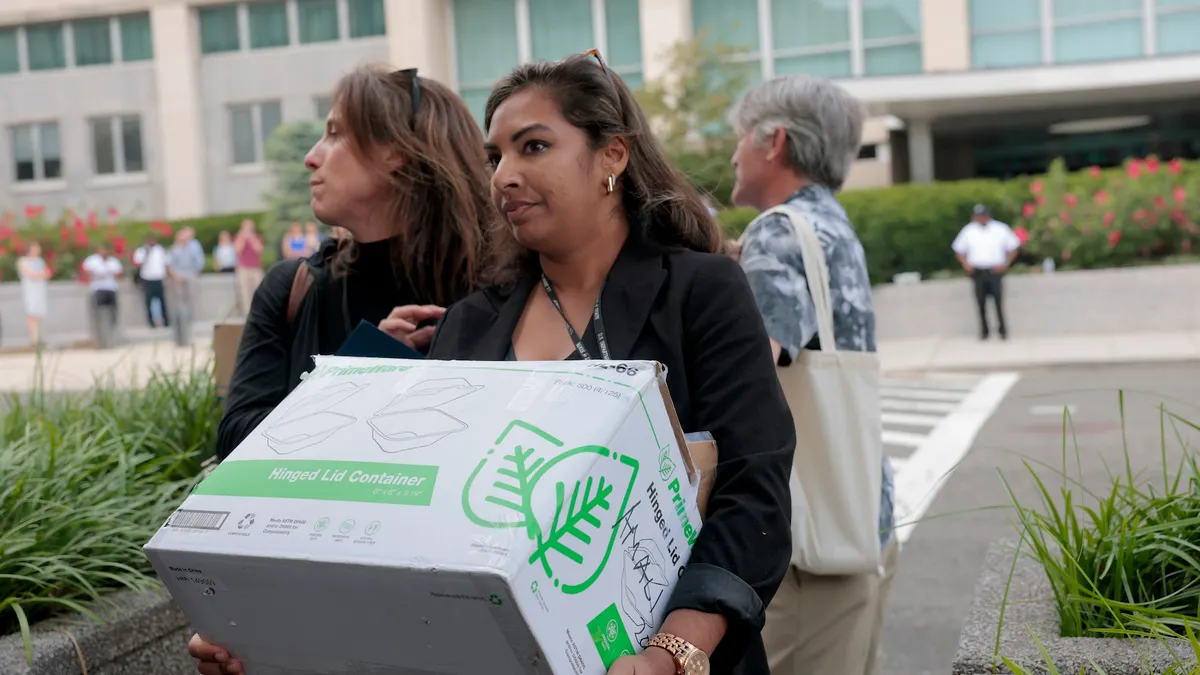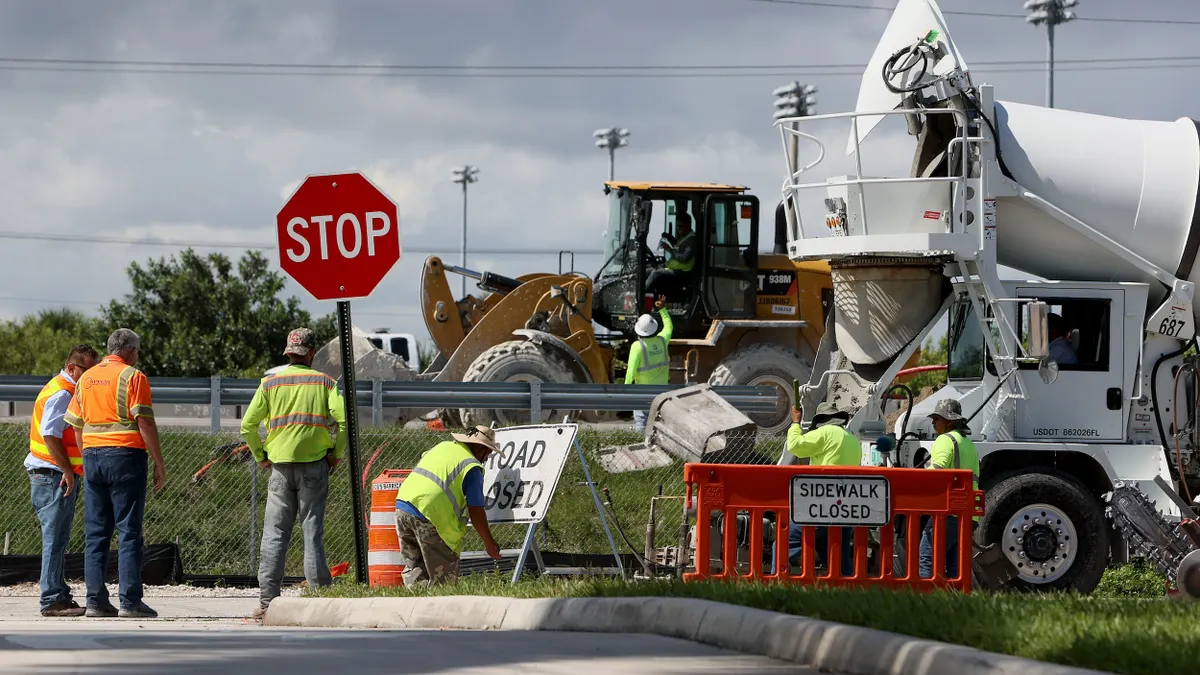Editor's note: This article was originally published in American City & County, which has merged with Smart Cities Dive to bring you expanded coverage of city innovation and local government. For the latest in smart city news, explore Smart Cities Dive or sign up for our newsletter.
Police officers carry a heavy burden for their years of service to our communities — one that extends beyond the physical risks and dangers, and instead silently manifests from the emotional toll of constant exposure to traumatic events. Every day, they face taxing situations: violent crimes, tragic accidents and heart-wrenching calls that most people will never experience. Behind each emergency response is a human being left to grapple with the emotional aftermath. Yet, the systems to help them process and recover have fallen short for too long.
The data reflects this gap. According to Police1’s 2024 “What Cops Want” survey, only 54% of agencies conduct debriefings following critical incidents to help their officers process traumatic incidents. This means nearly half of all officers are left to cope with these events alone. However, the Versaterm Public Trends Survey found that 81% of public safety professionals support expanding health and wellness resources within their agencies. The need — and desire — for meaningful support is evident.
Why does this matter to city and county leaders? The performance, retention and long-term resilience of their police departments and the trust of their communities depend on having a strong and supported police force. During my tenure as assistant chief at the Dallas Police Department, I saw firsthand how a lack of mental health support could erode officer morale and effectiveness. These experiences led me to develop Checkpoints, a comprehensive, influence-led system that supports first responders at all stages of their careers through open, ongoing conversations about mental health.
Mental health stigma in police work
Despite growing awareness of the importance of mental health and wellness, ingrained stigma continues to stand in the way of officers seeking support. Many still worry that acknowledging their own emotional struggles will be seen as a sign of weakness or incompetence. In a culture that has long upheld toughness and stoicism, the unspoken rule is to “leave it in the locker and move on.” But that mindset comes at a tremendous cost.
Without adequate support, officers may turn to unhealthy coping mechanisms like alcoholism, drug abuse, increased aggression or self-harm. The question for today’s law enforcement leaders is no longer whether mental health should be prioritized, it’s how to create a culture where asking for help is seen not as a weakness but a strength. How do we dismantle the stigma surrounding mental health in public safety and normalize an honest, constructive dialogue that feels approachable?
Checkpoints: A blueprint to emotional health for first responders
As assistant chief with the Dallas PD, I was tasked with assessing the state of officer wellness in our agency. Reflecting on my own career, I recalled a painful call early in my time as an officer involving a child’s death. I struggled with the emotional weight of that moment until a fellow officer asked me a few days later, "How are you doing?" That seemingly simple question stuck with me. It was the first time someone acknowledged that my feelings were normal and that what I was experiencing was grief.
The Checkpoints Strategy is framed around this interaction — a check-in from someone who understands. Checkpoints is a structured, peer-led mental wellness program designed to provide timely support to officers, dispatchers, first responders and forensic scientists after stressful, impactful or traumatic incidents. It’s designed to ensure that no public safety professional feels alone following a difficult call.
The program focuses on three key elements:
- Impactful incidents: when officers have been involved in high-stress incidents, including cases involving fatalities, child victims or extreme violence
- Influencer-led check-ins: to validate their emotional responses and make them aware of available support resources like online education, counseling and therapy
- Timing: where respected officers check in within 72 hours to offer a listening ear and remind colleagues that their reactions are valid, and that help is available.
These check-ins are not punitive or disciplinary investigations. They’re conversations — a chance to say, “What you’re feeling is normal and it is okay not to be okay.” And they work. At Dallas PD, rallying influential leaders to check in on their peers helped to normalize mental health discussions to break down cultural barriers. Rather than looking for reactive behaviors, we were looking for feelings and events that elicited these feelings. That cultural shift didn’t happen overnight, but the ripple effects were apparent as peer support became embedded in our processes. Wellness became a shared responsibility, not a private struggle.
Amplifying impact through modern technology
As technology continues to reshape public safety, so must how we support officer wellness. Advancements in data and analytics offer opportunities to scale and sustain human-centered strategies like the Checkpoints program by infusing mental health conversations and peer support into daily operations.
Modern platforms like Versaterm Mindbase are leading the way in helping agencies proactively monitor emotional well-being while preserving officer privacy and trust. By identifying personnel recently involved in distressing incidents, leaders can track patterns of strain and ensure timely check-ins. Automated reminders make it easier to follow through with check-ins so that peer support becomes a consistent and institutionalized practice.
As holistic, purpose-built platforms for public safety professionals, these tools offer centralized access to counseling, therapy, mindfulness resources and peer networks. By integrating wellness into core processes, agencies shift from reactive support to a proactive model, making mental health a foundational part of operations, not an afterthought.
The cultural shift
The Checkpoints Strategy represents a necessary cultural shift that prioritizes mental health and wellness alongside operational readiness. For this shift to take hold, wellness must be woven into an agency’s infrastructure, creating an environment where officers are understood, supported and empowered to seek help without fear of retribution. Achieving this transformation requires commitment from leadership, normalization through peer engagement and reinforcement through systemic change. Together, we can create a healthier, more resilient police force ready not just to serve but to thrive in the roles they’ve sworn to uphold.
About the Author
Reuben Ramirez is a law enforcement leader with nearly 30 years of service, recently retiring as assistant chief of police with the Dallas Police Department. He created the nationally recognized Checkpoints program, promoting emotional survival in high-stress professions. He now continues this mission in the public safety space as executive partner success manager at Versaterm.


















